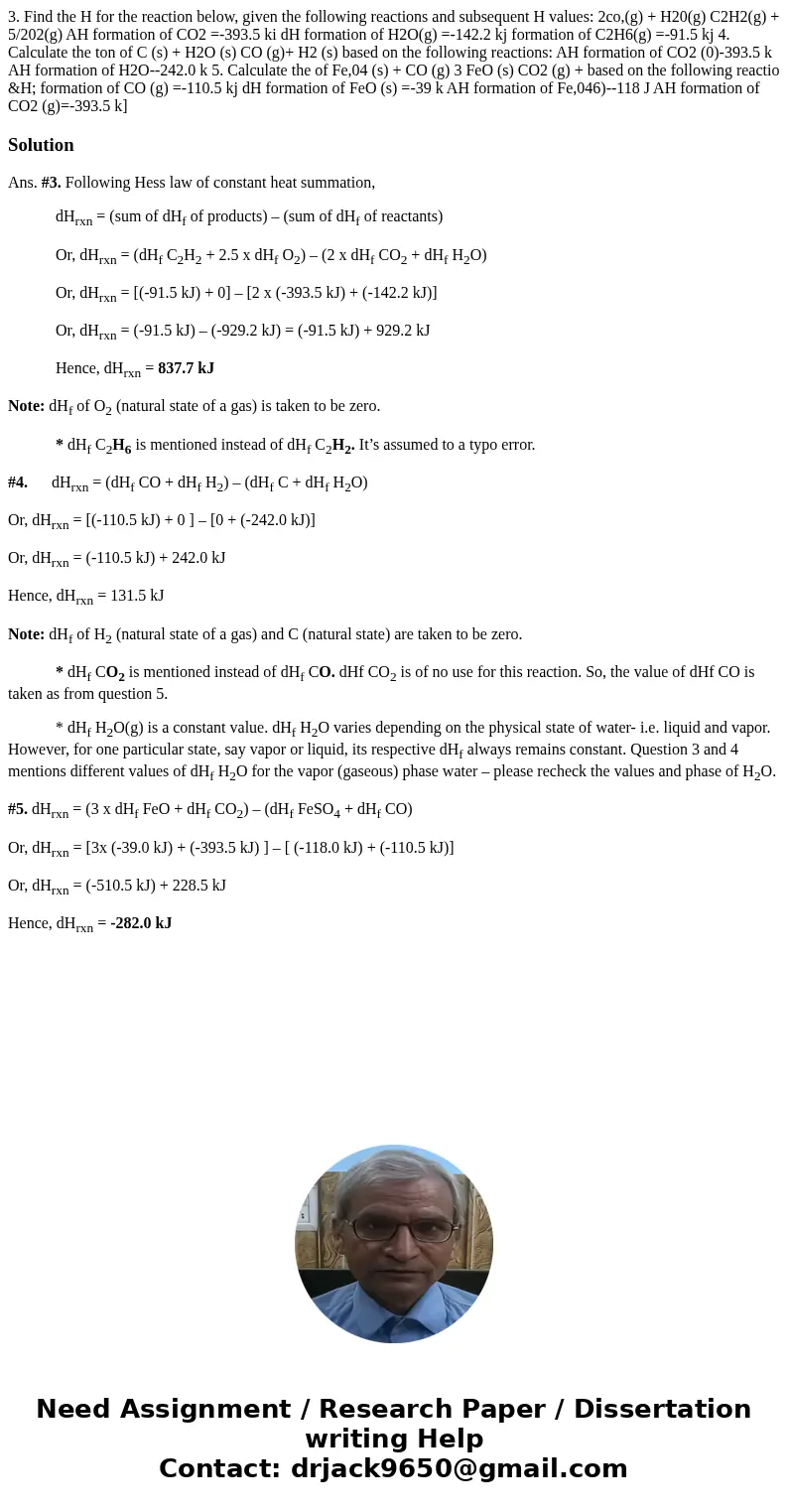3 Find the H for the reaction below given the following reac
Solution
Ans. #3. Following Hess law of constant heat summation,
dHrxn = (sum of dHf of products) – (sum of dHf of reactants)
Or, dHrxn = (dHf C2H2 + 2.5 x dHf O2) – (2 x dHf CO2 + dHf H2O)
Or, dHrxn = [(-91.5 kJ) + 0] – [2 x (-393.5 kJ) + (-142.2 kJ)]
Or, dHrxn = (-91.5 kJ) – (-929.2 kJ) = (-91.5 kJ) + 929.2 kJ
Hence, dHrxn = 837.7 kJ
Note: dHf of O2 (natural state of a gas) is taken to be zero.
* dHf C2H6 is mentioned instead of dHf C2H2. It’s assumed to a typo error.
#4. dHrxn = (dHf CO + dHf H2) – (dHf C + dHf H2O)
Or, dHrxn = [(-110.5 kJ) + 0 ] – [0 + (-242.0 kJ)]
Or, dHrxn = (-110.5 kJ) + 242.0 kJ
Hence, dHrxn = 131.5 kJ
Note: dHf of H2 (natural state of a gas) and C (natural state) are taken to be zero.
* dHf CO2 is mentioned instead of dHf CO. dHf CO2 is of no use for this reaction. So, the value of dHf CO is taken as from question 5.
* dHf H2O(g) is a constant value. dHf H2O varies depending on the physical state of water- i.e. liquid and vapor. However, for one particular state, say vapor or liquid, its respective dHf always remains constant. Question 3 and 4 mentions different values of dHf H2O for the vapor (gaseous) phase water – please recheck the values and phase of H2O.
#5. dHrxn = (3 x dHf FeO + dHf CO2) – (dHf FeSO4 + dHf CO)
Or, dHrxn = [3x (-39.0 kJ) + (-393.5 kJ) ] – [ (-118.0 kJ) + (-110.5 kJ)]
Or, dHrxn = (-510.5 kJ) + 228.5 kJ
Hence, dHrxn = -282.0 kJ

 Homework Sourse
Homework Sourse